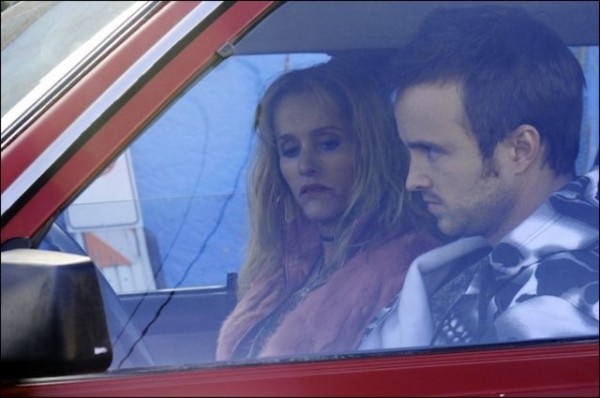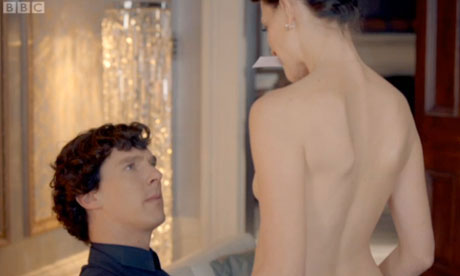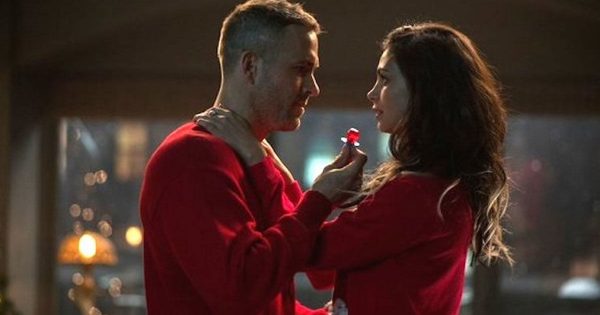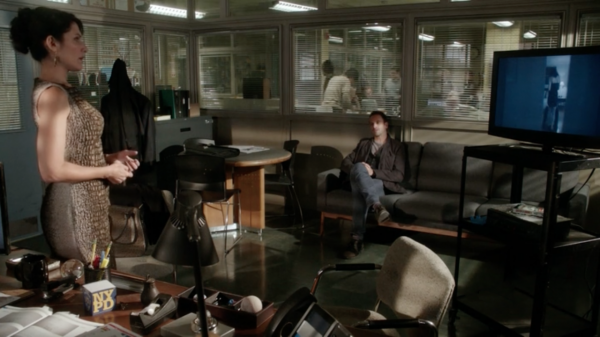Support Hos: American Horror Story: Freak Show
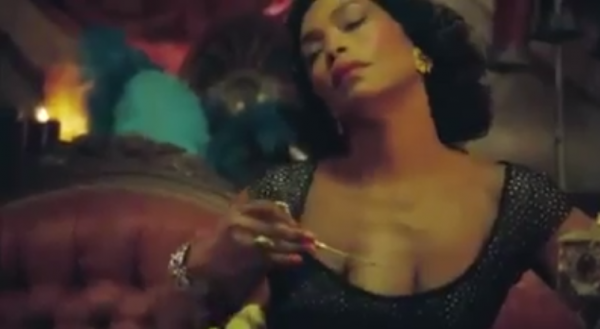
Adapted from a g-chat between Caty Simon and Maggie Mcmuffin:
American Horror Story: Freak Show draws on the traditional connection between perfomativity and sex work. Acting has always been connected with prostitution, since before the Jacobean era to very recently. And by connecting performance in a freak show with sex work, the show is pathologizing both.
The show’s creators might argue that they’re humanizing these “freak” characters, but why else would they see the freak show as a perfect setting for a horror story if they weren’t pathologizing it? In a lot of these characters’ stories, sex work is naturally connected to freak show performance—it’s just one rung down a ladder of degradation. Yet, despite that innate problem with American Horror Story’s sex worker representation, many of its central characters this season have been revealed as sex workers, so Maggie Mcmuffin and I couldn’t resist taking a closer look at the first five episodes.
Maggie McMuffin: A lot of the time, historically, freak shows were a way for people with disabilities to make their living on their terms. For the most part, they were very non-exploitative.
Caty Simon: I think that AHS does capture some of that feeling of family, the connection of a marginalized group taking shelter with each other against the world. But they also play on these supposed deformities for chills and laughs. And AHS’ Freak Show does constantly threaten its participants with exploitation. Both the Strong Man and Elsa are shown to be dictatorial and oppressive bosses.
Four depictions of sex work in the first five episodes—at least that’s a good amount of representation if nothing else.
So, how about Jimmy Darling, the first time we see him, in those head-to-toe leathers that scream “midcentury hustler”?
Maggie: Oh god, they do, he’s clearly going for that Marlon Brando swagger and it works.
Caty: I really liked the fact that he serves female customers via a Tupperware party. That’s so cutely 50s.
Maggie: I love that it’s the women at that party who we see talking the most and expressing their sexual needs.
Caty: It’s true to life in that the clients fetishize his disability—his flipper becomes all about its fingerbanging fun potential.
Maggie: The men from Elsa’s flashback don’t talk much. We don’t hear much from the boys Desiree is seeing. But those housewives are all about getting off.
Caty: I did think it was a bit of a cop-out in that it’s a portrayal of a male sex worker serving women clients when we know, realistically, how tiny that market is. But I did love his saucy grin as he worked.
Maggie: True. I’m torn between that and enjoying seeing the female gaze get played to.
Caty: And we do see Andy the bar hustler serving a male clientele later, so that balances it out somewhat.
I think this first instance of sex work contrasts quite a bit with how it’s shown later. There’s no degradation, no dark shadow world and dim lighting to match, he’s just happily making bank while he can. On the other hand, I don’t think it’s a romanticized portrayal, either.
Maggie: Nope. It’s very straight forward. It’s funny—the tupperware party—but let’s be real: most house party situations are hilarious. Bachelor parties are hilarious to me, every one of them I’ve worked.
